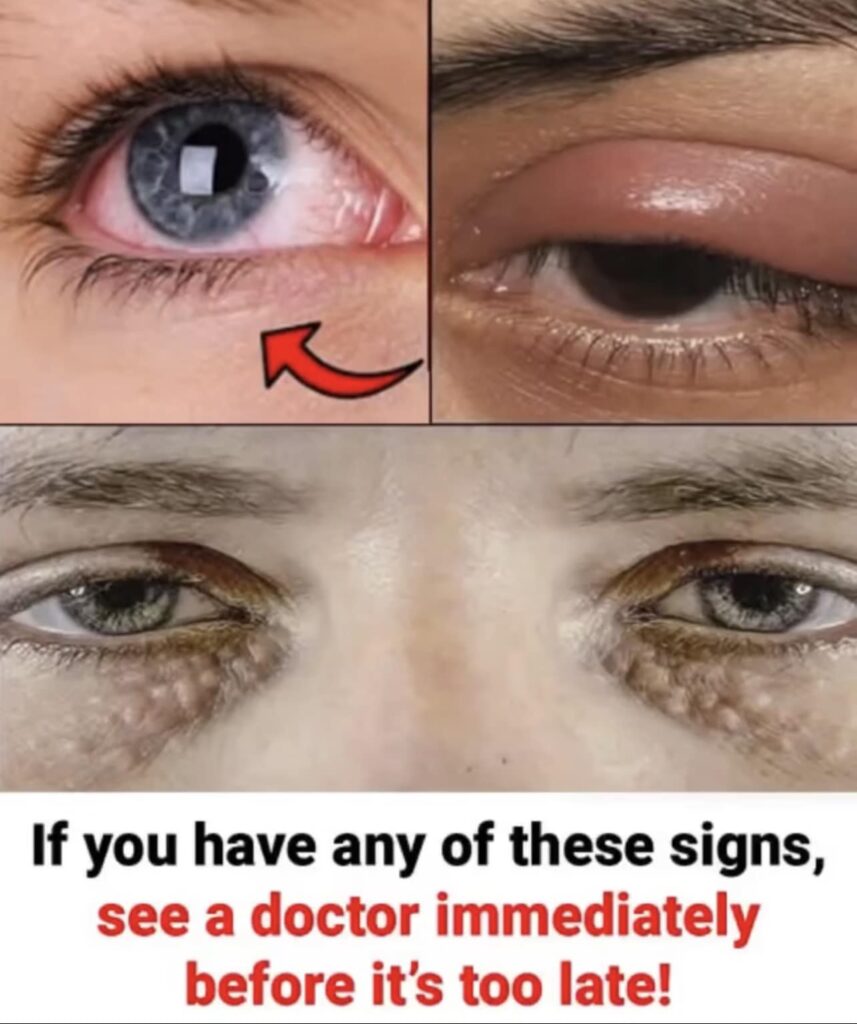
Your Eyes Are Talking—Here’s Why You Need to Listen
They say the eyes are the windows to the soul—but they’re also powerful indicators of your overall health.
Your eyes aren’t just about sight. These remarkably sensitive organs can sometimes reveal serious health issues long before other symptoms appear. A sudden change in how they look or how well you see could be your body’s early cry for help.
Too often, these signs are brushed off as stress, aging, or the need for a new prescription. But when your eyes start signaling something’s wrong, it’s critical to pay attention.
Here are eight eye symptoms you should never ignore—because your vision could be the first clue to something much bigger.
1. Sudden Blurred Vision
If your vision becomes blurry out of nowhere—while reading, driving, or just going about your day—it’s not something to take lightly.
This isn’t the gradual change of aging eyes. It’s sharp, unexpected, and unsettling.
Possible causes include:
- Stroke
- Severe hypertension (very high blood pressure)
- Uncontrolled diabetes
- Optic neuritis (inflammation of the optic nerve)
Blurred vision may also be accompanied by confusion, dizziness, or speech difficulty. Even if it’s the only symptom—seek emergency care. It could be your eyes warning you of a life-threatening issue with your brain or heart.
2. Yellowing of the Eyes
If the whites of your eyes turn yellow, it’s not just cosmetic—it’s a major red flag for jaundice, a condition often tied to liver trouble.
Underlying causes may include:
- Hepatitis
- Liver disease
- Gallbladder blockage
- Alcohol-related liver damage
The liver’s job is to filter waste and process bilirubin, a yellow pigment. If it fails, bilirubin builds up—turning your skin and eyes yellow. Don’t ignore this. Ask your doctor about a liver function test.
3. Loss of Peripheral Vision
If you’re suddenly bumping into furniture or struggling to see from the sides of your eyes, you could be losing your peripheral vision.
This can be a warning sign of:
- Glaucoma (a silent eye disease that damages the optic nerve)
- Retinal disorders
- Neurological problems (such as brain tumors, in rare cases)
Glaucoma often progresses without early symptoms—but once vision is lost, it’s usually permanent. Early detection is key, so schedule an eye exam with an ophthalmologist right away.
4. Dark Spots, Flashes, or a “Curtain” Over Your Vision
Seeing floating black dots? Flashes of light? Or a dark shadow slowly creeping across your vision like a curtain?
These symptoms could mean retinal detachment—a medical emergency.
Retinal detachment occurs when the light-sensitive layer at the back of your eye pulls away from its normal position. If untreated, it can lead to permanent vision loss in that eye.
Don’t wait. Get to an emergency room or eye specialist immediately.
5. Bulging Eyes
Your eyes should never appear as if they’re bulging or protruding unnaturally. If they do, something’s likely wrong.
Common causes include:
- Graves’ disease (a thyroid-related autoimmune disorder)
- Hyperthyroidism
- Eye socket infections
- Orbital tumors
Graves’ disease can also cause eye dryness, swelling, discomfort, and a fixed “staring” look. While often associated with thyroid problems, bulging eyes can lead to serious complications if not treated. Blood tests and imaging may be required.
6. Unequal Pupil Sizes (Anisocoria)
Look in the mirror: are both your pupils the same size?
If not—and you haven’t used medicated eye drops—this could signal a neurological emergency.
Potential causes include:
- Stroke
- Brain aneurysm
- Head injury
- Brain tumors
- Meningitis
Sometimes anisocoria is harmless, but if it’s sudden or paired with confusion, nausea, vision changes, or headache, don’t wait—get to the ER.
7. Extreme Dryness and Persistent Redness
Chronically dry or red eyes aren’t always caused by screen time or allergies. If symptoms are severe and ongoing, they may point to autoimmune conditions, such as:
- Sjögren’s syndrome
- Rheumatoid arthritis
- Lupus
These disorders can cause your immune system to attack moisture-producing glands, including those in your eyes. Left untreated, this dryness can lead to long-term eye damage. If you also have dry mouth, joint pain, or fatigue, see a rheumatologist.
8. Double Vision (Diplopia)
If you’re seeing double—especially if it comes on suddenly—it’s time to take it seriously.
Possible causes include:
- Nerve or muscle problems in the eyes
- Stroke
- Multiple sclerosis (MS)
- Aneurysm
- Diabetes-related nerve damage
Double vision could indicate something affecting the brain or nervous system. If it’s accompanied by dizziness, slurred speech, or weakness—head to the emergency room right away.
When Your Eyes Speak, Don’t Ignore Them
Your eyes don’t just help you see—they often speak the earliest language of illness.
They’re closely connected to your brain, heart, liver, and nervous system. So when something’s off with your eyes, it’s often a sign of something deeper.
Pay attention to the red flags:
- Sudden vision changes
- Yellowing or bulging
- Persistent dryness or double vision
Your eyes are trying to tell you something. Don’t second-guess them.
See a doctor. Ask questions. Take action. Because when it comes to your health, your eyes might just be the first—and most important—voice to listen to.


